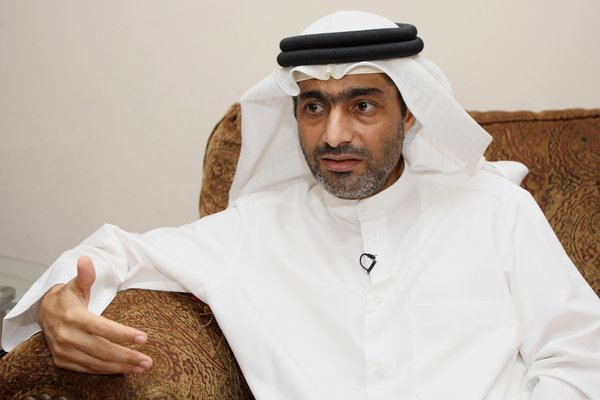
Oct 16, 2019
In an open letter, the ICJ and 139 other groups are calling the authorities of the United Arab Emirates to immediately and unconditionally release human right defender and 2015 Martin Ennals Award Laureate Ahmed Mansoor.
The full letter can be downloaded below in English and Arabic.
UAE-Free Ahmed Mansoor-Advocacy-Open letters-2019-ENG (English version, PDF)
UAE-Free Ahmed Mansoor-Advocacy-Open letters-2019-ARA (Arabic version, PDF)
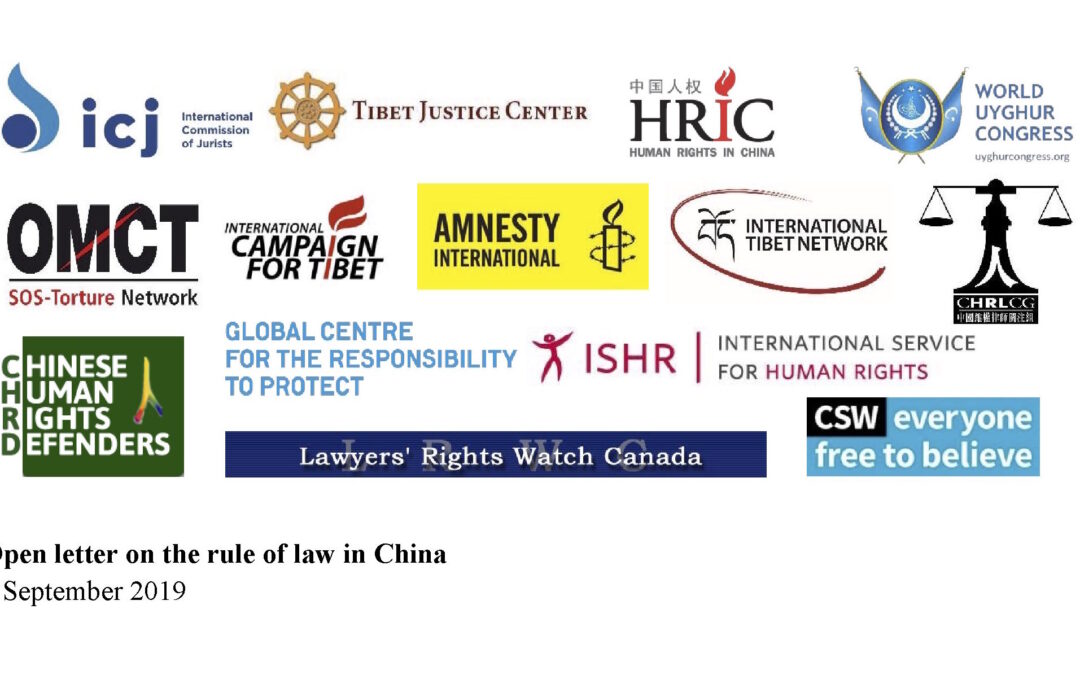
Sep 9, 2019
At the opening of the 42nd session of the UN Human Rights Council in Geneva, the ICJ and other NGOs call on States and intergovernmental organisations to address systemic failures of the rule of law in China.
Key concerns include lack of due process, lack of an independent and impartial judiciary, unjustified restrictions on freedom of expression, association and assembly, and on the freedom of lawyers to practice their profession, and other restrictions on civic space.
The letter reads as follows:
Open letter on the rule of law in China
9 September 2019
Across the People’s Republic of China, human rights violations are a systemic reality. Over the past year, the UN has once again documented legal and policy frameworks that fail to protect against discrimination; stigmatise Islam and stifle freedom of religious belief; undermine a wide range of socioeconomic rights and those who defend them; and permit gross violations of due process, including secret trials and arbitrary and incommunicado detention.
Over the past year, UN High Commissioner for Human Rights Michelle Bachelet and other international human rights experts, as well as governments have pressed for access to China, in particular to Uyghur, Tibetan and other ethnic areas. The High Commissioner has urged dialogue and a de-escalation of violence in Hong Kong, following allegations of excessive use of force by police to disperse massive public protests and the criminalisation of demonstrators.
Independent experts of the UN Human Rights Council have requested information and prompt action from the government regarding a broad range of alleged violations and especially the criminalisation of human rights defenders and civil society, such as citizen journalists, lawyers, democracy movement leaders, religious leaders, workers’ rights activists, social workers, public health advocates and students.
In June of this year, more than two dozen governments informed the High Commissioner and the Human Rights Council president of their concerns about the use of re-education camps to target Uyghur and other Muslim minority groups in western China. They reiterated the need for prompt, independent and unfettered access.
Despite these efforts at engagement, the Chinese government has refused to allow independent visits of relevant human rights experts, including the Special Procedures of the UN Human Rights Council; refused constructive dialogue, sowed disinformation and stoked violence in Hong Kong; used a push for sinicisation to eliminate cultural and religious diversity; and continued a fierce campaign against critics within China and many abroad, including other States. Chinese officials have stated, clearly and forcefully in public and in private, that ‘China is a country of rule of law’ and ‘will not accept interference in its internal affairs’.
This is patently misleading.
The Communist Party of China uses China’s laws to maintain state power, not to ensure justice. Overly broad charges that do not comply with the principle of legality are used to wrongfully detain, prosecute, and convict individuals for the peaceful exercise of internationally protected rights and participation in public affairs. In effect, any person who expresses views that differ from the Party narrative, or who seeks to highlight negative impacts of Party and government policies, can be caught in the crosshairs of criminalisation.
The Chinese government has refined and replicated a practice of characterizing all difference or dissent as terrorism, subversion, or a threat to national security. The tactics deployed in Hong Kong are regularly used against Uyghur and Tibetan peoples to justify a hard-line crackdown on the legitimate exercise of human rights. This is a dangerous departure from international human rights standards.
Furthermore, the Chinese government’s human rights record is no longer an issue limited by its borders. The government has actively used laws and practices to disappear and detain foreign nationals, restrict access to information overseas, conduct surveillance of Chinese nationals and other exile communities, embolden its law enforcement outside Chinese borders, and impede public participation, sustainable development and transparency in third countries where China has political and economic interests.
Human rights defenders of all kinds have been specifically targeted. The silence of the international community has not only allowed this to decimate civil society within China, but also to endanger civil society, defenders and other individuals critical of the Chinese government wherever they may be, including in the halls of the UN.
The same laws that allow the arbitrary deprivation of liberty of lawyers, public interest advocates, housing rights activists, and Christians in China’s wealthy eastern areas are further refined and weaponised against ethnic and religious minorities in the west of the country, including Tibet, where international access is a significant concern. The large-scale detention program in Xinjiang, which has detained Uyghurs and other minorities, may amount to crimes against humanity.
Read and download the full letter here, in PDF format: UN-Advocacy-OpenLetter-China-2019
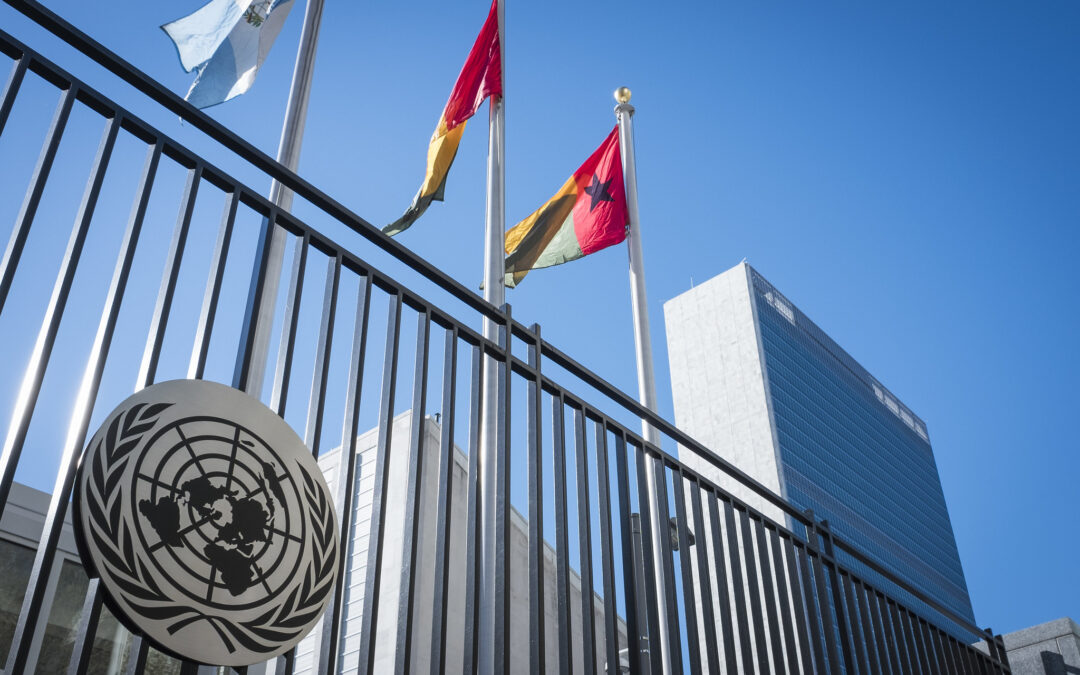
Sep 7, 2019
An open letter to the UN Secretary General signed by 16 international NGOs regarding the recent report by Gert Rosenthal, “A Brief and Independent Inquiry into the Involvement of the United Nations in Myanmar from 2010 to 2018.”
The Rosenthal report describes the UN’s failure to stop, mitigate, or even draw attention to violence that the UN Independent International Fact-Finding Mission found amounted to crimes under international law including crimes against humanity, and warrants an investigation of the crime of genocide against Rohingya.
Download the letter here: Myanmar-Letter UNSG Rosenthal-Advocacy-open letters-2019-ENG.pdf
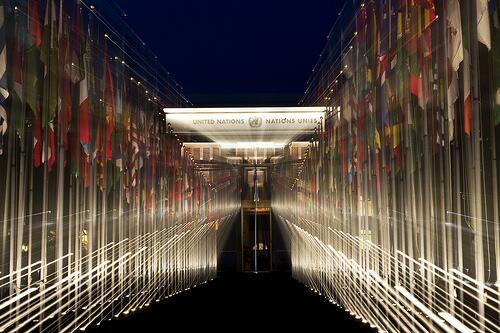
Aug 30, 2019
The ICJ has joined other civil society organisations in calling for increased scrutiny of human rights violations in Cambodia, at the upcoming session of the UN Human Rights Council.
The joint letter to all Member and Observer States of the Council emphasises that the Cambodian government’s actions before and since the July 2018 election demonstrate a comprehensive campaign to use violence, intimidation and courts that lack judicial independence to silence or eliminate the political opposition, independent media, and civil society groups critical of the government.
It calls on the Human Rights Council to adopt a resolution requesting the UN High Commissioner for Human Rights to monitor and report on the situation of human rights in Cambodia and outline actions the government should take to comply with its international human rights obligations.
The letter also says that the High Commissioner should report to the Council at its 45th session followed by an Enhanced Interactive Dialogue with participation of the Special Rapporteur on Cambodia, other relevant UN Special Procedures, and members of local and international civil society.
The full letter can be downloaded in PDF format here: Cambodia-UN statement-Advocacy-OpenLetter-2019-ENG
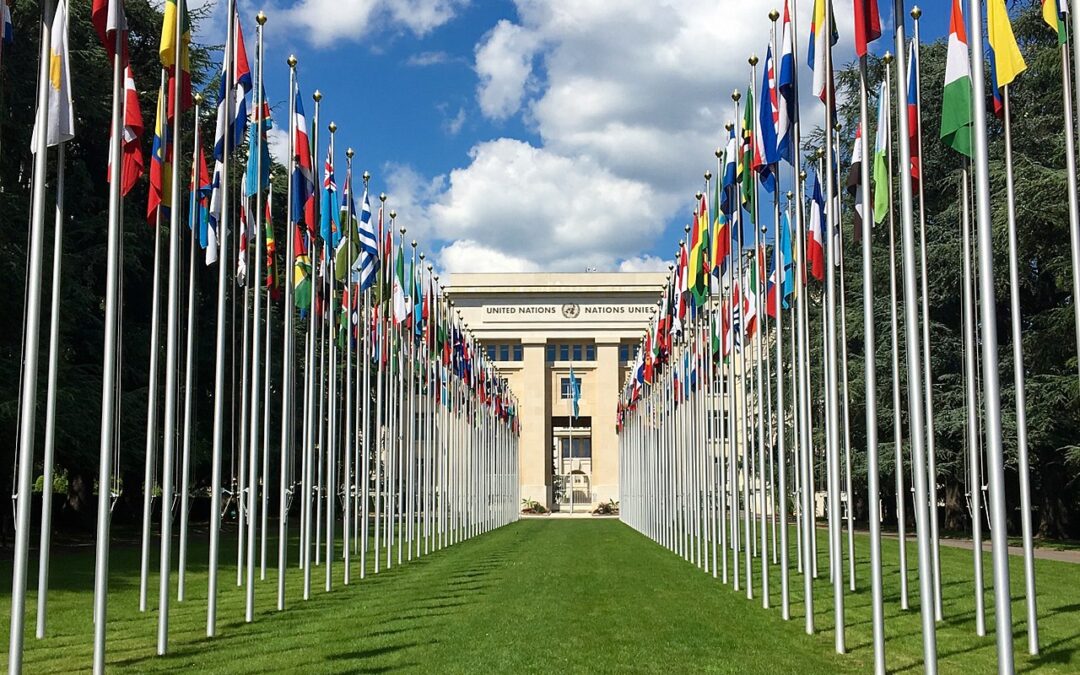
Aug 2, 2019
The ICJ has joined with some 40 other international, African and Burundian NGOs to call on States to extend the mandate of the UN Commission of Inquiry on Burundi, at the September session of the Human Rights Council.
The joint open letter to all delegations ahead of the upcoming 42nd ordinary session of the UN Human Rights Council, highlights the important work and impact of the Commission of Inquiry (CoI) to date, in a context of gross, widespread and systematic human rights violations, which may furthermore escale ahead of elections in 2020.
The NGOs call on Council Members and Observers to, at a minimum, support the extension of the mandate of the CoI on Burundi for a further year, until September 2020, in accordance with the Council’s responsibility to address situations of human rights violations, including gross and systematic violations, to advance accountability, to prevent further human rights violations and abuses, and to follow up on its actions and recommendations.
The Council should also request the CoI to prepare a report with a specific focus on elections and risk factors of human rights violations and abuses and to present it during an enhanced interactive dialogue at the Council’s 43rd session in March 2020.
The letter can be downloaded in full, in PDF format, in English or French.









